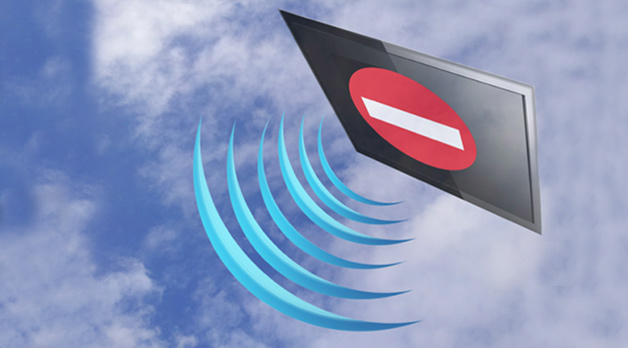Something strange is happening in the Sky

Don’t worry, we’re not about to be invaded by aliens. (At least, not as far as I know).
Instead, there has been a quiet revolution going on that has seen satellite-based UK television channels, which have previously been available over much of mainland Europe, disappear literally overnight.
Now, this is no big deal if you live in the UK, of course. In fact, you can now look forward to a much stronger signal that will particularly benefit those who live in areas where the broadcast signal has traditionally been weak.
So far, so good. However, there’s a downside, which results in the exclusion of the ‘bonus buyers’ who advertisers have previously enjoyed as an audience. They consist of those living in mainland Europe who have been capable of watching UK- based commercial channels and therefore who have been exposed to the advertising that they carry.
So what’s behind this change?
The answer is up in the sky. The Sky TV platform, which used to carry encrypted satellite transmissions from other broadcasters – BBC, ITV, Channels 4, and so on – over a wide European footprint, has now seen the migration of these channels to a new satellite that has a footprint that is focused on the UK to the exclusion of pretty much anywhere else.
For the technically minded, on 24th March 2012, most free UK TV services were transferred to a new temporary satellite, Astra 1N, as the previous satellite, Astra 2D, was close to failure. It is now retired and out of service. Astra 2F, the first replacement, was launched in September 2012 and the second replacement, Astra 2E, was launched on 29th September 2013, finally going into service in February 2014. The footprint of 2E excludes 90% of the European transmission area that 1N used to serve. As of February 6th 2014, at about 2am, channels began to disappear and have now gone altogether, with the exception of Sky subscription channels that remain on the wide beam of Astra 2E.
For all the talk of mass immigration into the UK, our country actually has the largest number of emigrants to Europe of any European country, currently around 2.2 million people, living in Germany, France, Portugal and beyond – with about a million living in Spain alone – and all these people have been previously within the footprint of the redundant satellite.
When you consider that an averagely rated ITV programme outside of the top 30 reaches an audience of under a million, you can see that the ‘bonus buyers’ could actually add up to a sizable proportion of the target audience of any advertiser, particularly if the subject is an internationally available branded product.
Sky itself has yet to migrate to the narrow bean satellite, and will presumably be reluctant to change as an estimated 5 – 7% of its revenue – north of £200million – comes from those who choose to ignore its terms and conditions and continue to watch in their adopted countries. How long this will last is difficult to say, as Sky is thought to be coming under pressure to change their footprint from both OFCOM and copyright owners of films and other content providers, as the amount paid by Sky for the right to broadcast these programmes is based on UK-only audiences. Equally, in 2014 Astra 2A will be retired and Astra 2G will be the final replacement satellite to be launched, which could prove to be the final step in the Sky migration process.
So, if you advertise a product that is as popular in the supermarkets of the Costa del Sol as it is in Colchester, you’ve lost a chunk of your audience. In this ever more connected age of ‘anything, anywhere’ you could see this as a bit of a retrograde step, a bit like having had supersonic travel once with Concord and now having gone back to sub-sonic. The internet doesn’t help much as the catch up services, iPlayer and ITV Player, are blocked to those with an overseas ISP.
However, radio through the internet is not affected, so those longing for a taste of home whilst going about their business in Cologne can still rely on Ken Bruce to provide it.
Meanwhile, it’s adios to EastEnders for many and goodbye to a couple of million people from the potential target audience of UK advertisers.
Bizarrely, those living in Benidorm will no longer be able to watch the programme of the same name. (ITV, about 4.5 million viewers, BARB).
¡hasta luego!
